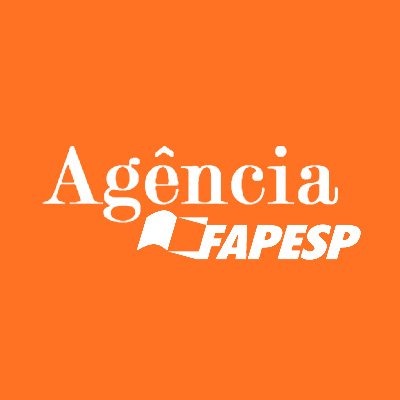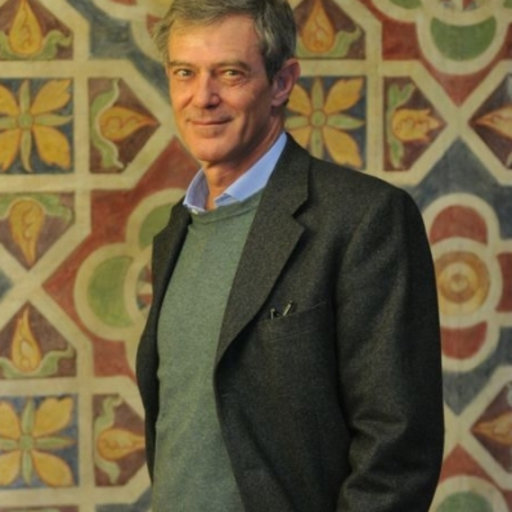The Department of Science and Technology Policy (DPCT) of the University of Campinas (UNICAMP) (https://portal.ige.unicamp.br/en/node/553) hereby announces the opening of five post-doctoral fellowships in: (1) System Innovation; (2) Technology Upgrading, Catching-up; (3) Research and Innovation Policy Design, Implementation, Evaluation; (4) Ecosystems for Innovation and Entrepreneurship; (5) Big Data for Assessing Innovation Processes and Research and Innovation Policy. These post-doctoral fellowships are attached to the São Paulo Excellence Chair (SPEC) “System Innovation: Organizational Strategy, Research & Innovation Policy Governance” (http://www.ige.unicamp.br/spec) established at DPCT by the São Paulo Research Foundation (FAPESP). This SPEC program has just been initiated and will run at UNICAMP for the next five years. The post-doctoral fellowships announced herein are full-time positions for up to two years each.
Research
lines:
(1)
System Innovation:
The new SPEC program will investigate important
aspects of the socio-technical regime that attracts, nurtures, and promotes
technological advancements and innovative applications with important
implications for growth, development and sustainability. We will study the
processes used by individual organizations and by societies to become more
productive and more competitive through innovation, but also investigate how
innovation can be more environmentally friendly and more socially inclusive.
This research appointment will concentrate on the
study of “global industry governance” as it relates to technological
advancement and innovation. A topic of special interest is the international
fragmentation of production and the positioning of firms and countries across
the activities of global value chains (GVCs) and the ensuing networks.
Strategic business partnerships, of which GVCs are a specific manifestation,
will also be an area of concentration.
The successful applicant will be expected to work on
quantitative and qualitative methods using information from interviews,
university and industry surveys, and commercially available databases. Prior
training in the field of economics of technological change and innovation will
be a plus. Training in other fields such as sociology, public policy, and business
management as they relate to science, technology and innovation is also welcome.
Ability to start and carry out projects independently, engage in theoretical
modelling and/or econometric/statistical analysis, manipulate data, write for
publication in well ranked international refereed journals, and participation
in research proposals for extramural funding will be highly valued. The
successful applicant will also expect to engage in the organization of one or
two major international events of this SPEC program during a 2-year tenure at
UNICAMP.
This position will be directed by Professor Bruno
Fischer (UNICAMP, Brazil) and Professor Nicholas Vonortas (The George
Washington University, USA; and UNICAMP, Brazil).
(2)
Technology Upgrading, Catching-up (TR1):
This research line discusses the modern approaches to
conceptualize the struggle of emerging economies to narrow/close the gap with
the economies at the technology frontier and avoid “middle-income traps”. Such
traps are often associated with “middle-technology” or “middle-innovation”
traps. Work will concentrate on the “policy mix”, including both supply-side
and demand-side policies, that countries may deploy for achieving such an
objective. The modern literature on Industry 4.0 (Advanced Manufacturing)
(I4.0) and Internet of Things (IoT), will be highly relevant. Familiarity with
the literature on middle-income traps, technology upgrading and catching-up
will be a major plus. The work will extend to manufacturing as well as to knowledge-intensive
service sectors such as financial technologies (fintech) and creative
industries.
The successful applicant will be expected to work on
quantitative and qualitative methods using information from interviews,
university and industry surveys, and commercially available databases. Prior
training in the field of economics of technological change and innovation will
be a plus. Training in other fields such as sociology, public policy, and
business management as they relate to science, technology and innovation is also
welcome. Ability to start and carry out projects independently, engage in
theoretical modelling and/or econometric/statistical analysis, manipulate data,
write for publication in well ranked international refereed journals, and
participate in research proposals for extramural funding will be highly valued.
The successful applicant will also expect to engage in the organization of one
or two major international events of this SPEC program during a 2-year tenure
at UNICAMP.
This position will be directed by Professor André
Furtado (UNICAMP, Brazil) and Professor Nicholas Vonortas (The George
Washington University, USA; and UNICAMP, Brazil).
(3)
Research and Innovation Policy Design, Implementation, Evaluation (TR2):
This research line deals with the design and implementation
of effective evidence-based R&I policies. The design (strategic planning)
and implementation (resource allocation) of R&I policy critically depend on
the lessons from ex-post impact assessment and the blending of those results
with forward-looking prioritization exercises. Here we work on three
sub-fields:
- R&I investment prioritization: Processes that systematically look at the long-term future
of science and technology with the purpose of identifying areas of strategic
research and emergence of new technologies; Investment strategy for complicated
R&I portfolios in environments of intense market and technological
uncertainty.
- Complete evaluation cycle for R&I: The implementation of a complete evaluation cycle for
R&I policies and programs, that is, the seamless use of complementary
processes linking ex ante evaluation with monitoring and with impact (ex post)
evaluation processes.
- “Wicked” application: mission-oriented R&I policies: The application of all of the above (evaluation methods) in
what can be described as a “wicked” evaluation problem, namely broad
mission-oriented R&I policies with strong system innovation
characteristics.
The successful applicant will conduct research on the
development and application of concepts and methods of impact evaluation of
programs and policies related to science, technology and innovation. Methodologies
may focus both on ex-post and on ex-ante approaches with a perspective of
building complete cycle evaluations linking ex-ante and ex-post under
systematic evaluation processes. The researcher is expected to work on
qualitative and quantitative methods applying counterfactuals of different
natures. Three axes can be developed individually or in combinations: a)
evaluations based on secondary data, both on structured and non-structured
database, including Big Data and text analytics; b) evaluations based on
primary data directly and indirectly collected from stakeholders, either
through web questionnaires or direct interviews; and c) evaluations based on
the combination of previous axes. Basic skills in statistics will be highly
desirable.
This position will be directed by Professor Sergio
Salles-Filho (UNICAMP, Brazil) and Professor Nicholas Vonortas (The George
Washington University, USA; and UNICAMP, Brazil).
(4)
Ecosystems for Innovation and Entrepreneurship (TR3):
This research line deals with the fact that
knowledge-intensive entrepreneurship (KIE) is unevenly distributed in
geographical space, largely attributed to heterogeneous local endowments in
terms of knowledge, institutions, resources and demand. Here we work on several
sub-fields:
- Determinants of KIE success:
the factors responsible for KIE success which are closely related to the
systemic components of the local entrepreneurial ecosystems in which young
small companies are embedded.
- Ecosystems of innovation and entrepreneurship: this sub-field will deal with the modern literature of
innovation ecosystems, clusters, smart specialization, and regional
development.
- Academic entrepreneurship: the
“third mission” of the universities specifically as it relates to the
generation of new knowledge-intensive ventures which often takes place within
ecosystems where universities are core players. Emerging economies are starting
to zero in on the possibilities.
- Corporate entrepreneurship:
the development of new business by established firms in the effort to renew
themselves through new combinations of resources. Such activity includes both
corporate venturing and strategic entrepreneurship.
The successful applicant will be expected to work on
quantitative and qualitative methods using information from interviews,
university and industry surveys, and commercially available databases. Prior
training in the fields of economics of technological change and innovation and
economic geography will be a plus. Training in other fields such as sociology, public
policy, and business management as they relate to science, technology and
innovation is also welcome. Ability to start and carry out projects
independently, engage in theoretical modelling and/or econometric/statistical
analysis, manipulate data, write for publication in well ranked international
refereed journals, and participate in research proposals for extramural funding
will be highly valued. The successful applicant will also expect to engage in
the organization of one or two major international events of this SPEC program
during a 2-year tenure at UNICAMP.
This position will be directed by Professor Sergio
Queiroz (UNICAMP, Brazil), Professor Ron Boschma (Utrecht University, NL) and
Professor Nicholas Vonortas (The George Washington University, USA; and
UNICAMP, Brazil).
(5)
Big Data for Assessing Innovation Processes and Research and Innovation Policy
(TR4):
In this research line we try to address a most
pertinent issue nowadays: whether and how the availability of large, diverse
datasets and of new advanced ways of analyzing them affect research and
innovation policy and strategy decision-making and, in turn, the organization
and development of “Systems Innovation”. Here we work on two axes:
- Infrastructural support to the four research lines: This, for instance, can translate into supporting applications
of Technology Upgrading and Catching-up such as the analysis of evolution of
production, international trade, economic specialization and growth (TR1);
supporting Research and Innovation Policy Design, Implementation, Evaluation
such as the analysis of large scientific publication and patent application
data and provide advanced visualization techniques (TR2); and supporting Ecosystems
for Innovation and Entrepreneurship, such as the analysis of regional industrial
configurations and innovation ecosystems (TR3).
- Analytical tools for large databases: New analytical methods suitable to research and innovation
policy and strategy analysis by social scientists; investigation of the overlap
between traditional large data such as bibliometrics with alternative
indicators (altmetrics).
The successful applicant will be well versed in the
manipulation of large datasets and be willing to work side by side with social
scientists like those described above on specific questions of interest in the
broad field of science, technology, innovation policy and strategy. Prior
training in computer science, mathematics, statistics, will be a plus. Training
in other fields such as natural sciences and engineering is also welcome.
Ability to start and carry out projects independently, engage in extensive data
modelling and/or econometric/statistical analysis, write for publication in
well ranked international refereed journals, and participate in research
proposals for extramural funding will be highly valued. The successful
applicant will also expect to engage in the organization of one or two major
international events of this SPEC program during a 2-year tenure at UNICAMP.
This position will be directed by Professor Rodrigo
Costas (University of Leiden, NL), Luciano Digiampietri (USP, Brazil) and
Professor Nicholas Vonortas (The George Washington University, USA; and
UNICAMP, Brazil).
Duties:
Duties include carrying out research on
grants/contracts, theory development, data collection and analysis around the
world, authoring papers and reports, publishing in the highly ranked peer-reviewed
international academic journals, participating in seminars and work groups, and
collaborating on research grant/contract applications. They also include
assistance in organizing international events (workshops, conferences).
Importantly, the post-doctoral researcher will serve
as one of the in-house administrators of the SPEC program at DPCT. This program
deals with various aspects of technology and innovation policy and includes at
its core the faculty members mentioned above.
Desirable
Requirements:
Successful applicants will have completed a doctoral
degree during the past five years. Candidates must have less than five years’
experience post-doctorate, a demonstrated record of individual initiative in
research, and strong analytical skills. Preference will be given to applicants
whose training, skills and research interest’s best align with those of mentioned
faculty members.
Remuneration:
The remuneration package is set in accordance with FAPESP’s standards (http://www.fapesp.br/en/5427) and includes benefits and relocation expenditures.
The fellowship includes the following components (R$ is the Brazilian Real):
- Stipend: R$ 88,476.00 per year
- Additional funds for research-related expenditures such as travel for conferences (Reserva Tecnica): R$ 13,271.00 per year (15% of the stipend)
- Relocation to the State of São Paulo: R$ 7,173.00 plus the cost of air travel.
The exchange rates are variable. Using the purchasing power parity rate of the World Bank (most recent year 2018) the annual value of the fellowship in Brazil would be PPP USD 53,814.00.
Contact:
Interested parties are encouraged to communicate with
the project and participating faculty and scientists for more information. They
can reach Professor Vonortas by email (vonortas@gwu.edu) or telephone at
+1-202-378-6230. Apply electronically through the project’s website.
Application:
Applications must include a cover letter, annotated
curriculum vitae, statement of research interests, three academic reference
letters, and a concise description of proposed research under the fellowship.
Location:
It is expected that post-doctoral researchers are
located in the Department of Science and Technology Policy of UNICAMP (main
campus). They can – are encouraged to – participate in international
conferences and workshops. For short time periods they could request to
relocate to other locations in Brazil or abroad due to particular research
needs. The requests will be evaluated on a case-by-case basis.
Additional
Information:
DPCT is located on the main campus of UNICAMP in the
city of Campinas, State of São Paulo, Brazil. Campinas is about 100 kilometres
northwest of the city of São Paulo. The working language of the postdoctoral
position is English. Knowledge of at least basic Portuguese is desirable but
not required.
Due to the extraordinary global situation, we have decided to extend the application deadline of the five (5) pre-announced post-doctoral fellowships by two more months. The new deadline for complete applications will be May 31, 2020.







